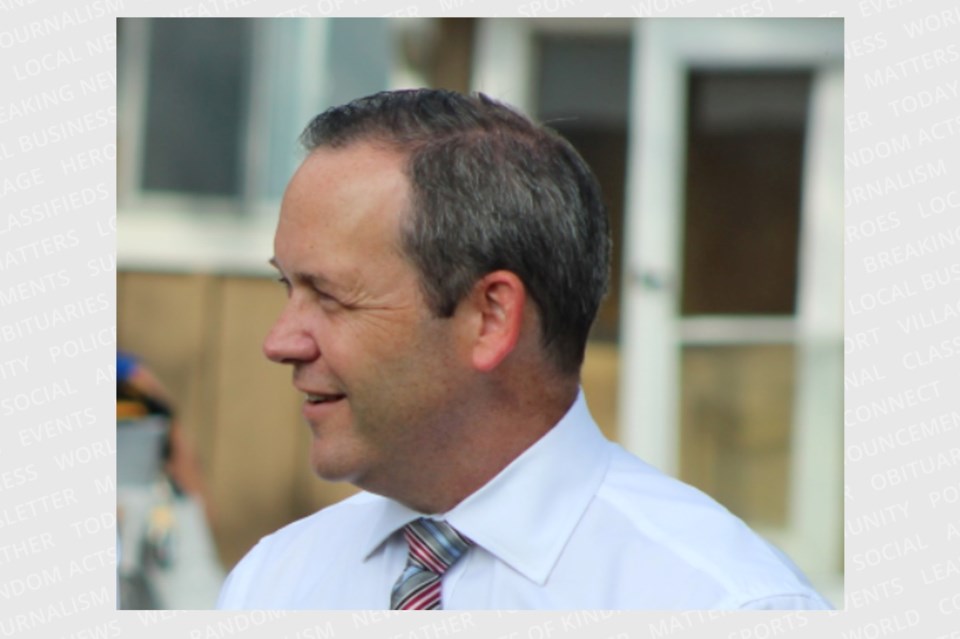BarrieToday welcomes letters to the editor at [email protected]. Please include your full name, daytime phone number and address (for verification of authorship, not publication). The following is in response to 'LETTER: Elected officials should appoint chief justice,' published March 7.
Mr. Lewis is correct in that he does not know me. I was a history teacher, primarily Canadian history, which included government and law as part of the curriculum.
That does not make me an expert at all, but it does give me some foundation with which to critique important changes in our institutions — in this case, the process to appoint the new chief justice.
The system of choosing the chief justice for Ontario, the one that Mr. Downey has changed, was put in place by renowned Attorney General Ian Scott following a three-year pilot project. The Judicial Appointment Advisory Committee (JAAC) was established to help the selection process and it is a system that has been widely acclaimed. Its first step was to define and establish the criteria for selection, ensuring the best candidates are selected, to interview candidates and make recommendations.
During the pilot project, the number of people on the selection committee grew from nine to 13. The final form of the selection process was put into law to ensure that judges in future will be appointed by a process independent of political considerations and not be beholden to their appointer.
The independence of the courts is a keystone in our democracy. As noted in my letter, judges are often called upon to rein in elected officials when they overstep their authority and trample on individual rights, such as declaring Ford’s Bill 124, which capped the wages of public-sector workers, such as nurses, unconstitutional.
According to ontariocourts.ca, candidates who wish to apply for advertised vacancies had to have a minimum of 10 years of experience, a sound knowledge of law, an appreciation for social issues and cultural diversity.
As Mr. Downey himself noted in a 2019 Globe and Mail article, “applicants have to fill out 20-page paper forms, then go through a screening that sometimes takes months.”
The process is quite thorough.
In the end, the JAAC, an independent committee of lawyers, judges and community members representing the diversity of Ontario’s population, compiles a list of the top candidates and forwards them to the outgoing chief justice to present to the attorney general for consideration and selection. The final decision is that of the attorney general, but with the guidance of the outgoing chief justice.
I think, Mr. Lewis, you have to agree when I said candidates were carefully vetted in the selection process by a well-qualified panel of experts.
What Mr. Downey is doing now is having all applications come directly to him, for him alone to interview, based on “his values” and for him alone to decide. Frankly, that lack of transparency and putting that power and trust into the undisclosed private values of one person is frightening.
A number of legal associations have also criticized this move, including the Advocates’ Society, saying this “threaten(s) to undermine public confidence in the appointment process and have significant implications for public confidence in the quality and independence of Ontario’s judiciary.”
Justice Julie Bourgeois, president of the Association of Ontario Judges, has also voiced her concerns, calling it an aberration.
The past behaviour of this government in meddling in the appointment process does not instill confidence in this secretive, one-man selection undertaking. Indeed, this government has been challenged on a number of patronage appointments.
In my letter, I noted Sean Weir’s appointment as executive chair of Ontario Tribunals when in fact he had no adjudication experience or qualifications other than being a failed Conservative candidate.
Let us not forget that Mr. Ford attempted to bend the rules to install his friend, Ron Taverner, as the new OPP commissioner, and indeed selected someone to be Ontario’s envoy to New York whose claim to fame was that he played lacrosse with the son of Mr. Ford’s chief of staff. In fact, his chief of staff, Dean French, was forced to resign over patronage appointments.
It is possible Mr. Downey could well select a most excellent and qualified candidate. However, given this government’s sad record of political meddling, one would always wonder what kind of political connection was really involved, and, if not in this appointment, how could it be abused going forward.
Perhaps the real issue is why Downey wants to change a system that has produced excellent results and has the public’s confidence.
If the people of Ontario are to have confidence in the courts, the selection process must be open, transparent and free from political interference.
Let the JAAC do the job that it was designed to do.
Debbie Palmer
Oro-Medonte Township



